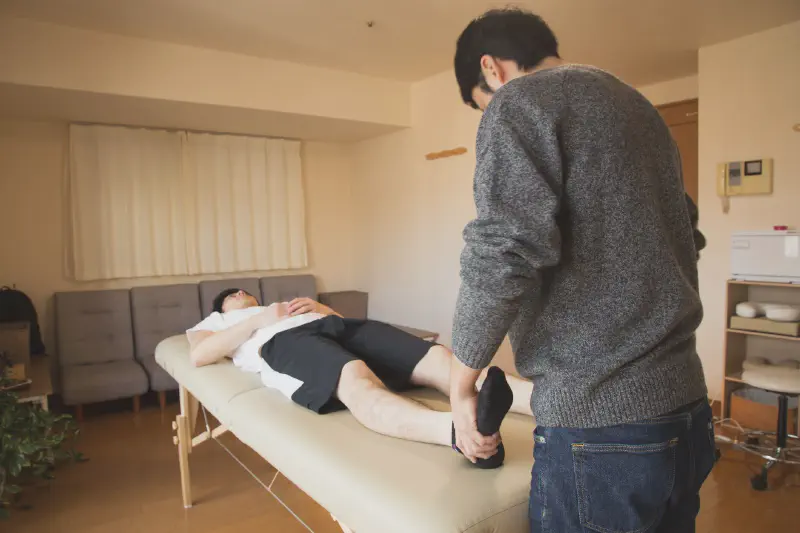Physical Therapy for Runners: When to Seek Professional Help
Introduction
As a passionate runner, you understand the thrill of pushing your body to new limits. However, with the high impact and repetitive nature of running, injuries are a common occurrence. When these setbacks happen, seeking professional help from a physical therapist can be the key to a swift and successful recovery.
Physical therapy for runners offers a comprehensive approach to injury management and prevention. By working with a skilled physical therapist, you can address the root causes of your running-related issues, develop a personalized treatment plan, and get back to the sport you love stronger than ever.
Common Running Injuries and Signs of Need
Runners are susceptible to a variety of overuse injuries, such as shin splints, plantar fasciitis, and runner’s knee. These conditions can develop gradually over time, causing persistent pain and discomfort. Acute injuries, like sprains and strains, can also occur during high-intensity training or competition.
If you’re experiencing chronic pain, reduced performance, or difficulty recovering from your runs, it may be time to seek the expertise of a physical therapist. These signs could indicate an underlying issue that requires professional intervention to properly diagnose and treat.
Role of Physical Therapy in Running Recovery
When you visit a physical therapist, they will begin with a comprehensive assessment to identify the root cause of your injury. This may involve a detailed examination, gait analysis, and diagnostic testing, if necessary. Based on their findings, the physical therapist will develop a customized treatment plan to address your specific needs.
Physical therapy for runners often includes manual therapy techniques, such as joint mobilization and soft tissue massage, to improve mobility and reduce pain. Your therapist will also prescribe a series of targeted exercises to strengthen the affected area, improve flexibility, and enhance your overall running mechanics.
In addition to hands-on treatment, physical therapists play a crucial role in injury prevention. They can provide guidance on proper running form, recommend appropriate cross-training activities, and develop strategies to help you avoid future setbacks.
Injury Prevention for Runners
Preventing running injuries is just as important as treating them. Physical therapists can help you implement a well-rounded approach to injury prevention, which may include:
- Running recovery tips, such as incorporating active recovery days and foam rolling
- Cross-training and active recovery activities to build strength and improve overall fitness
- Proper nutrition and hydration to support your body’s recovery needs
- Ensuring you’re getting adequate sleep and managing stress levels
By addressing these key aspects of your training and lifestyle, you can reduce your risk of overuse injuries and maintain your running performance.
Overtraining Syndrome and Its Management
Overtraining syndrome is a common challenge faced by runners, characterized by a decline in performance, chronic fatigue, and increased risk of injury. If left unaddressed, overtraining can lead to long-term health consequences.
Physical therapists play a crucial role in the management of overtraining syndrome. They can help identify the underlying causes, develop a plan to gradually return you to your training regimen, and provide guidance on strategies to prevent future episodes of overtraining.
Sports Medicine and Running Injury Treatment
In some cases, running injuries may require a multidisciplinary approach involving sports medicine professionals, such as orthopedists, sports medicine physicians, and physical therapists. Physical therapists often work closely with these specialists to ensure a comprehensive and coordinated approach to your care.
Depending on the severity of your injury, your physical therapist may recommend advanced treatment options, such as ultrasound, laser therapy, or specialized manual techniques, to accelerate your recovery.
The Importance of Seeking Help Early
When it comes to running injuries, the sooner you seek professional help, the better. Addressing issues early on can significantly reduce your recovery time and improve your overall outcomes. By working with a physical therapist, you can prevent minor problems from escalating into more serious conditions, ultimately helping you return to running safely and with confidence.
Conclusion
As a runner, your passion for the sport is undoubtedly a driving force in your life. When injuries threaten to derail your progress, seeking the expertise of a physical therapist can be the key to a successful recovery and a stronger, more resilient you.
By understanding the role of physical therapy in running recovery, injury prevention, and the management of overtraining syndrome, you can take proactive steps to protect your body and maintain your running performance. Remember, don’t hesitate to seek professional help – your long-term running success may depend on it.
